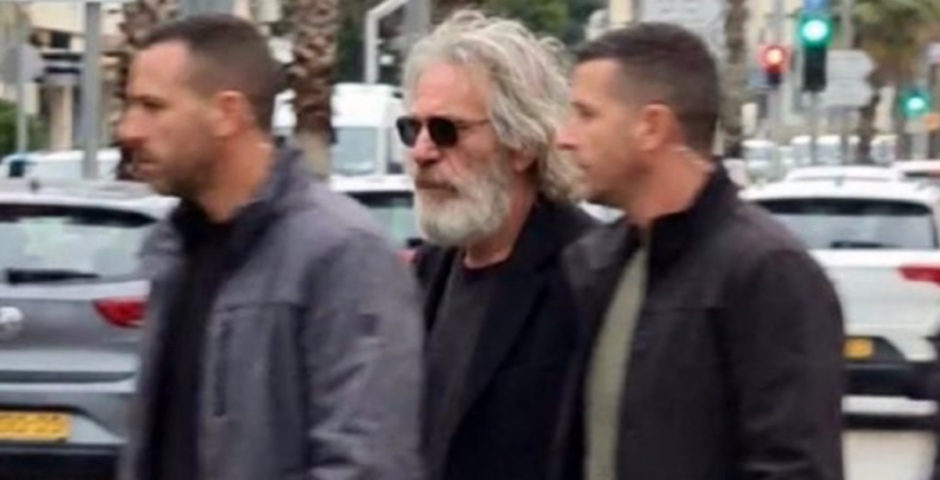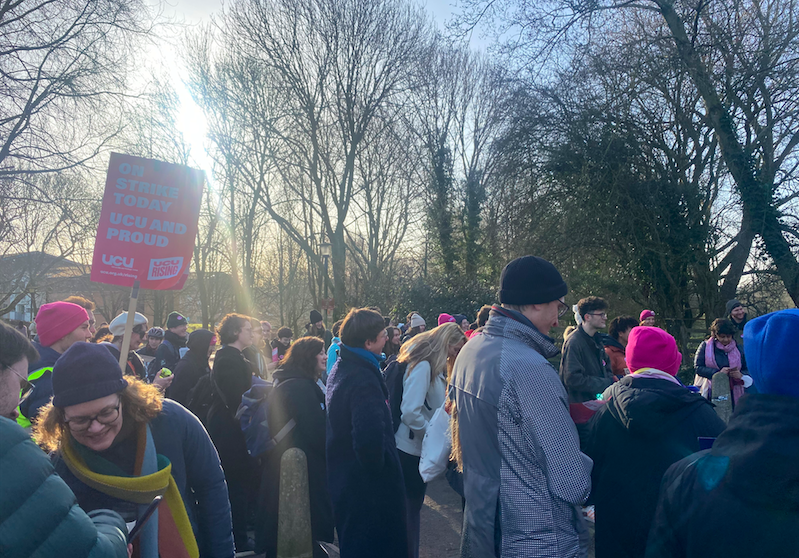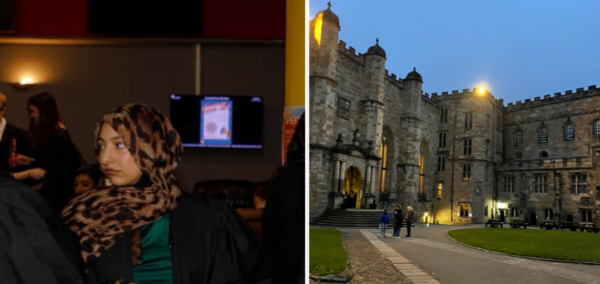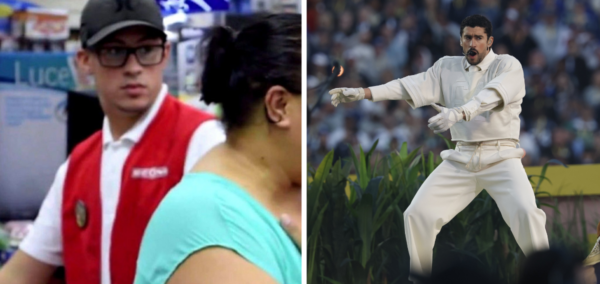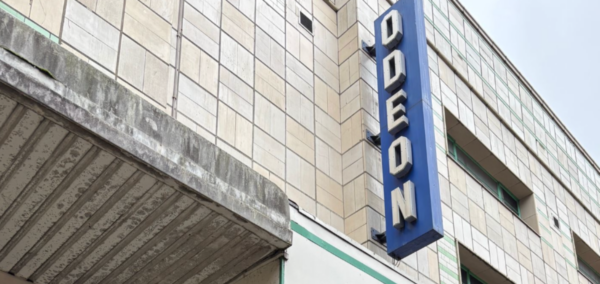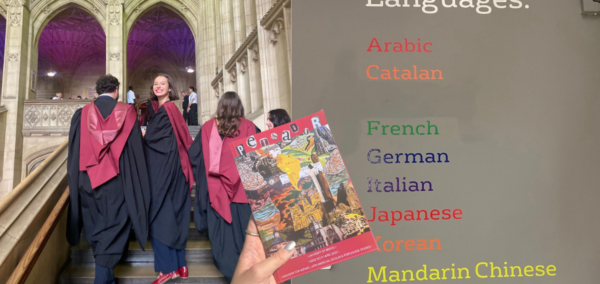
‘We have no option left’: Speaking to York UCU about the marking boycott
‘Charlie Jeffery should be embarrassed’
The Universities and Colleges Union (UCU) recently announced a marking and assessment boycott which, having started on Thursday 20th April, is currently affecting 145 UK universities, including the University of York.
Following 18 days of strike action last term, progress has been made in negotiations on pensions, however on the 17th April UCU members voted to reject UCEA pay proposals, triggering this boycott.
To understand the situation better, The York Tab spoke to York UCU’s membership secretary, Steven Spencer, about the ongoing industrial dispute.
8 days to the Marking and Assessment Boycott. For the avoidance of doubt, it is employers, like @UniOfYork that have brought us to this. We simply want fair pay, conditions and pensions. Not too much to ask, or so you would think. #UCUrising
— UCU UOY is fighting for fairness (@UcuYork) April 12, 2023
‘A severe step to take’
The boycott currently taking place will see UCU members not take part in any marking, moderating setting or validation of summative assessments, including all exams and coursework for both undergraduate and postgraduate students. Alongside this, members won’t be undertaking any external examiner responsibilities at any institution taking part in the boycott.
Spencer admitted that the boycott is “quite a severe step to take”, though urged that the action “cannot be looked at in isolation”. In short, the marking boycott is an answer to a pay offer that the UCU deemed unacceptable, however Steven told The York Tab how this dispute goes much deeper than short-term disagreements over pay.
He said that after 15 years of being underpaid, on top of issues surrounding workload, contracts, and pay gaps, members have “reached a point”. He continued that members “just don’t think the sector will exist as it does now in 10 years time. We’ve reached a tipping point”.
What is this dispute actually about?
Most Read
When UCU members went on strike for 18 days last term, the action was often described as part of an ongoing campaign for better pay and pensions. Whilst progress has been made on pensions in previous negotiations, the UCU’s rejection of the UCEA’s last pay offer means this dispute is still ongoing, and has led to further action in the form of the marking boycott.
According to the UCU, members have seen their pay cut by 25 per cent since 2009, whilst university vice chancellors and senior management have been “collecting six figure salaries”. Last academic year, York’s Vice Chancellor, Charlie Jeffery, had a salary of £288,562 as reported by the university. Steven told The York Tab how this pay cut has been impacting university staff, describing how “it used to be a comfortable job, and now its not”.
Despite their differences, Steven was happy to find common ground with York’s Vice-Chancellor, Charlie Jeffery, saying that members agree there is a problem with student finance, as tuition fees have failed to rise with inflation. However, when it comes to pay, he argued that the University of York “doesn’t have a leg to stand on”.
He alleged that York’s status as a charity means that the university has to keep a reserve fund that could pay off 90 days worth of liabilities. He said that, according to the last reported figures, York had over 150 days worth of operating money (meaning days the university could pay all obligations with no income at all), 60 more days than the required 90.
The UCU claim that a 10 per cent pay rise for all staff at the Uni of York would cost £25 million and was affordable for at least two and a half years under the current student finance regime . This £25 million cost would equate to 20 operating days in the reserve fund. After explaining this Steven said: “Given the university is struggling to recruit and retain staff, how is it justifiable to not offer an inflation matching payrise, but instead to keep lots of cash it is not legally required to keep?”
On the topic of university reserve funds, the University of York has neither confirmed nor denied the figures reported by the UCU, however Charlie Jeffrey has said: “We have often heard there are over £40 billion of ‘reserves’ that might be used to fund higher pay. As this WonkHE piece explains, this is not the case. These ‘reserves’ are, in essence, the sum total value of the buildings and equipment universities have built and purchased in the past. They are not cash assets that can be put into pay.”

‘We know the money’s there’
Staff recruitment has been an issue for York, as Steven explained that last year York failed to recruit staff in “spectacular numbers”. According to the UCU, The University of York had an “underspend of £9 million” on its staff budget last year.
“So if you ever thought that your lecturers and professional services staff looked a bit stressed and overworked that’s because there weren’t enough of us.”
To summarise the issue, he said: “We know the money’s there. We know it’s not been spent on staff. We know its not really being spent on students. We do know that there’s vanity projects like the new student centre going up”. The University of York has been unveiling plans for a new £35 million student centre, which is scheduled to open in 2025.
York’s reserve funds, underspending on staff, and focus on “vanity projects” such as the student centre and semesterisation, Steven argues, highlight why the UCU deemed the most recent pay offer as “unacceptable”.
Are we suggesting @UCEA1 's pay offer is not generous and that we should not applaud them for it? Surely not. https://t.co/VbwZtAWgur
— UCU UOY is fighting for fairness (@UcuYork) April 20, 2023
The dispute over pay is only one of four “fights” that the UCU have been striking over; the remaining three issues are casualisation, pay gaps, and workload.
Casualisation refers to the way in which staff contracts are increasingly less likely to be permanent. As Steven explained, a lot of staff are on one or two year, or hourly pay, contracts, and the amount of staff on such contracts has increased dramatically in the last decade.
According to the UCU, 46 per cent of universities use zero-hour contracts to deliver teaching, and 68 per cent of research staff in higher education are working on fixed-term (non-permanent) contracts. Whilst these contracts have many negative implications for staff, Steven highlighted how those on insecure or one-year contracts are struggling to get housing contracts for less than 18 months, particularly in York’s housing market.
The third fight revolves around gender and ethnicity pay gaps at universities nationally. In 2022, The University of York reported that the mean hourly rate gender pay gap was 19.1 per cent, whilst the pay gap between White and BAME staff members averaged at 14.5 per cent. Steven said that the union doesn’t see “any justification for why [the pay gaps] should exist”.
‘Only 10 minutes to mark an essay’
The final issue surrounds workload, which has been increasing in line with reductions in staff recruitment and and as staff are being lost to other sectors. Steven said that the UCU want to prevent a “race to the bottom” as “people at the moment are deciding where to work based on where is the least worst place to work.
“We want to make sure people can make research career and teaching career decisions and professional service staff decisions based on the best job to go for and where to work, not where doesn’t screw you.”
He went on to describe situations where staff have only been given two hours to put together lectures, or have been given “only 10 minutes to mark an essay”. With the current move to semesterisation, Steven highlighted how staff are now having to rework entire modules, taking from them time that they should be investing in students.
He said that “Change projects” that are time consuming for staff, such as semesterisation, are not even “a priority for students or the average staff member”, and are symptomatic of a wider issue in the management of UK universities.
The University sector is ‘changing into something it shouldn’t be’
Looking to the national context of this dispute, Steven spoke to The York Tab about the recent “business-ification” of the University sector from a management level. He said: “These universities treat themselves these days as businesses, they are charities and they think they compete with each other.”
This managerial mindset lies, in part, at the heart of many of the issues the UCU are striking over. For example, staff become overworked when universities and departments are understaffed, but universities “want to reduce the proportion of staff to students by quite a considerable number, to be more efficient”.
At York specifically, Steven talked about recent moves to a faculty structure, in which independent departments were grouped into faculties and as such, decisions were moved from a department to a faculty level. He said that if you replace “faculties” with “divisions”, then the university begins to look like a corporate company with divisions that are expected to compete with each other.
He said that “bringing in corporate logic and corporate practices”, and with it the notion of internal and external competition, is “not appropriate to a charity based sector that’s supposed to be for education and societal good.
“It’s not about picking at individual issues, it’s about the whole sector changing into something it shouldn’t be. It’s not a business. We are not competing”.
‘Universities won’t exist how they do now in 10 years’
Overall, there is a feeling that the purpose of university is being lost through a “business-minded” management style. Vocalising this feeling, Steven said that “it just becomes a job, and that’s not what it should be”.
He said that the overall attitude from senior management at universities across the UK has been one of “if you don’t like it, go somewhere else”, to which Steven argued “there isn’t anywhere else”. He continued by saying how people pick this career path due to a passion for their subject and a love of teaching, and since universities are the default for these professions, staff don’t want to leave.
He said that Charlie Jeffery, alongside other university vice chancellors, have “wedded themselves” to the “business-minded” UCEA, who he says view trade unions as “a thing of the past”. Because of this, Steven believes a part of this dispute is an “attempt to break the UCU”. Steven was confident that the UCU won’t and can’t back down, saying that if things continue as they are “universities won’t exist as they do now in 10 years”.
The boycott won’t be good for anyone, but we have no option left
When asked about the inevitable impact the marking boycott will have on students, Steven urged that all UCU members are regretful that the situation has led to this. He said that “there are people not sleeping at the moment, that don’t sleep at night because of the impact that the actions will have”, and that others are having to make “extremely difficult decisions in families”.
Pairing the impact it will have on students with the impossible choices it has presented for UCU members taking part, Steven acknowledged that this boycott won’t be good for anybody and this is not what members want, but he said: “We have no option left”.
Talking on the previous series of negotiations, Steven said how the UCU were also presented with “framework agreements” to resolve the three fights other than pay, which the union rejected as “meaningless”. He summarised these frameworks as containing “very little action” that “would take too long” and that don’t take the fundamental issues seriously.
He stressed that UCU members and employers agree that there is a problem, and they agree on what some of those problems are, and that this agreement is often overlooked as the sides are pitted against each other. He continued that, despite this, a solution hasn’t been reached due to “intransigence on the part of the employers. They agree that the problems exist, but they cannot accept that they are not businesses,
“If an employer agrees with the analysis of the problem, then says shrug your shoulders we’re not doing anything, what do you do next?”.
A simple message to the @UniOfYork VC and his mates. We are not going anywhere and if you have not noticed, the university does not work well without staff – though we know that is your dream. Get around the table and start taking your responsibilities seriously. #ucuRISING
— UCU UOY is fighting for fairness (@UcuYork) April 25, 2023
Charlie Jeffery ‘should be embarrassed’
Whilst Steven, on behalf of all UCU members, expressed deep regret for the impacts the current marking boycott will have on York students, he said that students who are upset at the situation should “look for where the power is. The power doesn’t reside with unions”.
He described the action taken by the UCU as a reaction to failures in senior management. Looking at the Uni of York specifically, he said that “our Vice Chancellor will tell you he’s a leader in this and that he’s pushing it nationwide”, but despite a lot of “fine words” the UCU “haven’t really seen much action”.
Steven continued: “Frankly, if I caused a situation where my staff were refusing to mark assessments, I’d be embarrassed. And if I wasn’t going to UCEA meetings and saying we’ve got to solve this and make it happen, I’d also be embarrassed… Is he embarrassed?
“He’s got the power to end [the dispute], he can pay us, he has influence at the negotiations, the powers in his hands.”
‘Students and staff are on the same page’
When asked what UCU members want students to know about the ongoing industrial dispute, Steven gave three answers. Firstly, he encouraged students that are (justifiably) upset about the impact industrial action will have on them to understand the power lies with York’s Vice Chancellor, and as such, they should email him with concerns and ask for a resolution.
Secondly he urged students to “talk to your staff”. He said that these issues shouldn’t be taboo or something to shy away from, find out from the source. Thirdly, he said students should read the Vice Chancellor’s emails on the subject carefully, and should fact check them as Steven says they are only half of the story.
Finally, Steven stressed that, although industrial action which negatively impacts students tends to pit the groups against each other, “students and staff are on the same page”.

In an email to students about the marking boycott, Vice Chancellor Charlie Jeffery said that the “timing of this escalation is very disappointing given the recent progress and constructive atmosphere in national negotiations”. He continued by saying the uni are “committed to doing absolutely everything we can” to prevent and reduce disruption from the action.
Responding to the boycott, the University of York is also cutting staff pay by 50 per cent for each working day in the boycott period. An open letter was then sent to Charlie Jeffery, signed by hundreds of staff and students, opposing this decision. It said: “We know you appreciate how much University of York staff give to the institution and to our students. We know that you are painfully aware that many staff routinely work well beyond their contracted hours in order to support our students and fulfil our academic and social mission. A 50 per cent deduction in salary is in no way proportionate to the time staff spend on marking, nor does it recognise the very significant hours staff regularly put in over and above the standard working week”
Charlie Jeffery has since responded to this letter, saying that whilst he appreciates the pay deduction “weighs very hard on union members” the university has made the decision “in the interest of students.” He described the boycott as a “deliberate choice” by UCU decision-makers, saying they chose to “escalate to the hardest option possible. Other options were open.”
He said: “Can we stop facing inwards in conflict, trading boycott and pay deductions, and instead start facing outwards in unity to tackle the source of our problems? Can we at York lead the way in showing there is scope to get employers, unions and their members into a position where there’s sufficient trust, and a sufficient sense of shared interests, to work together on shared problems?”
The marking and assessment boycott started on the 20th April, and is set to continue “until the disputes are settled, or UCU calls off the boycott, or at the end of the industrial action ballot mandate (usually six months after the industrial action ballot closes)”, according to the UCU website.
A spokesperson for The University of York said: “Pay negotiations take place at the national-level, between representatives of the employers and unions, and any agreed proposals apply to universities across the sector. Charlie continues to do all that he can – sector-wide and here in York – to enable us all to find a way out of this damaging cycle of industrial action disruption, including working collaboratively with our local UCU branch.
“Finances across the HE sector are under severe pressure, compounded by inflation, which has added tens of millions of pounds to university costs across the UK.
“This year and beyond, we can expect to see many universities posting operating deficits while also working hard to reduce costs.”
Related stories recommended by this writer:
• University of York to cut staff pay bt 50% due to marking and assessment boycott
• ‘Teaching UK undergraduates loses universities money’ says York Vice Chancellor




